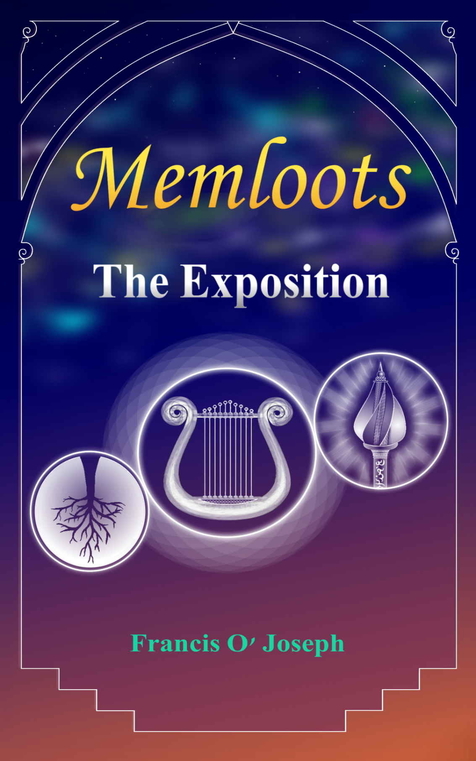Author Francis O’ Joseph immerses readers in a sci-fi world that looks oddly similar to our own in Memloots: The Exposition. Tapping into philosophy, religion, agricultural practice, economic theor,y and sociology, while still maintaining an air of whimsical adventure, this is a YA novel brimming with creativity and potential.
Philo Heartfield is like so many other young people on the planet Petrichor: studying hard and aspiring to earn a spot at a prestigious university. He dreams of traveling to Maraville, the home world of the intelloyds, outer-space philanthropists who have transformed his home into a thriving, livable planet.
Ringed by a weather-controlling dome and spotted with 72 massive food-producing farms sponsored by Plethora Corp, Petrichor seems like a vibrant colony, but there is a dark secret behind the intelloyds’ generosity. As it turns out, fruits and vegetables aren’t the only things being farmed for those higher up the food chain; the intelloyds have weak memories, but they have a sinister approach to fixing that problem. While the intelloyds claim to have saved humanity, they may have unknowingly enslaved them, stoking the very dangers they promised to protect against.
As the truth begins coming into focus, Philo learns that his family has a long tradition of bending the rules of their extra-planetary benefactors, and even digging tunnels to regions outside the all-encompassing dome. Pushing his literal boundaries leads to questioning his philosophical and religious foundation, and many of the truths of his life on Petrichor are brought into a doubtful spotlight. Philo must trust in himself, and expose the deadly heart of a monstrous conspiracy, if the people of his world are to ever know true freedom again.
There are many original and intriguing elements of this story, particularly the radical religious groups and the history of spirituality on the planet. The repurposing of gold idols from humans to the Treasure Chest of intelloyds is a particularly poignant symbol, and there are many other allegorical elements of the plot that make the book feel relatable, such as the manipulative control of information and the danger of concentrating too much power in a centralized group. Religious zealotry and blind allegiance also come into play – issues that feel timely and incredibly relevant in our modern age of charlatans, global crises, media spin-doctors and corporations with the clout of countries.
On the technical side of the novel, the writing could use a serious round of editing, as the prose often feels too adolescent for the complex plot and clever undertones – even for a YA novel. An excess of exclamation points, too many self-reflective questions, and overly dramatic dialogue make it difficult to fully sink into this expansive world. While the plot is fascinating, as is the backstory and world-building, some plot points feel far too convenient, while some of the secondary characters are one-dimensional, lacking the same depth and believability as Philo. An improvement in the language, grammar, pacing and flow is essential to keep readers of any age engaged and entertained.
That said, the book is uniquely unpredictable, thoughtful, and original when compared to other books in the genre, and the story offers a strong foundation for more books in the series.
Book Links
STAR RATING
Design
Content
Editing
Get an Editorial Review | Get Amazon Sales & Reviews | Get Edited | Get Beta Readers | Enter the SPR Book Awards | Other Marketing Services
























Leave A Comment